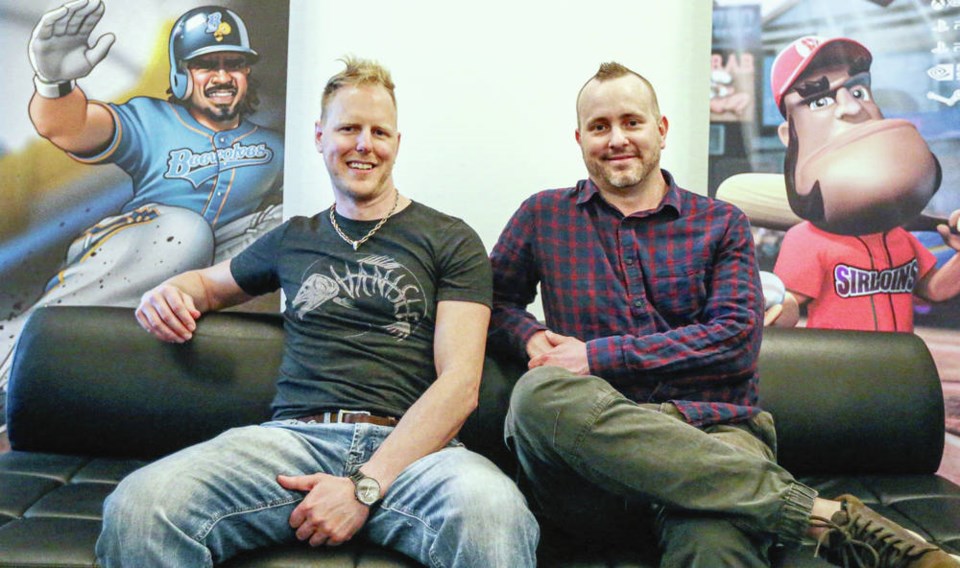A small Victoria gaming studio that has quietly carved out a well-respected spot in the game-design space has just jumped to the big leagues in a deal with video-game giant Electronic Arts Sports.
Metalhead Software, which developed the Super Mega Baseball franchise of games, has been acquired by EA Sports, a division of California-based Electronic Arts.
While details of the deal have not been disclosed, both companies say the acquisition ticks a number of boxes on either side of the deal.
Scott Drader, who founded Metalhead with Christian Zuger in 2009, said his small team has made a point of maintaining a fairly low profile in the industry, but had been considering partnering with a bigger player for years.
“This is the opportunity that stood out from the rest, and we decided this is the right one,” he said. “It’s exciting for the city, the local tech scene and the local game-development scene.”
Drader said being part of a giant like EA Sports, which produces best-selling titles like FIFA, Madden NFL and NHL, is a chance to shine a light on what Metalhead can do.
“We have been reasonably successful with our products, but this is an opportunity to put them on a bigger stage and have a broader audience see the work we do,” he said, adding it will also allow the studio to tackle more ambitious things in the future.
Drader said it’s too early to say exactly how the two companies will work together, and he isn’t ready to divulge what their more ambitious plans may be, but he does expect the deal will mean their team of 21 developers is about to expand.
“Each added person makes a huge difference,” he said.
EA Sports executive producer Sean Ramjagsingh said the most important thing is that his company doesn’t tinker with the success of the new acquisition.
“We want to disrupt as little as possible and just listen and learn and figure out how best to work together,” he said. “What they do with their team and the experience they deliver is nothing short of amazing. We need to go in and understand their secret sauce and how they drive their process and deliver the magic they do. We don’t want to mess with that.”
Ramjagsingh admits the acquisition is partly about snapping up a team of talented developers, but he stressed it’s also about buying a proven game title.
“First and foremost, we are fans of their games, the Super Mega Baseball franchise,” he said. “It’s an opportunity for us to get back into baseball.”
EA Sports developed baseball games until 2005, before other companies snapped up exclusive licensing rights from Major League Baseball.
Earlier this year, in a deal worth more than $2 billion US, EA acquired Glu Mobile, which produces MLB Tap Sports Baseball, a game for mobile phones.
Ramjagsingh said with Metalhead’s games, EA Sports has rounded out its baseball offerings.
“They are also a small Canadian-based company, a group of passionate developers that have come together and created an amazing series,” he said. “We feel we can lean in and see how they work best and where we can be additive — where we can leverage the power and reach of EA to bring baseball to players around the world.”
EA packs plenty of power. Last year, the company, which has its major sports studios in Vancouver and Florida, posted revenues of about $5.5 billion US.
Ramjagsingh said after getting to know the founders and team at Metalhead, EA Sports realized there was a good opportunity to invest and expand the team and potential to expand its work into other sports.
Drader agrees there is plenty of potential growth housed within its small Victoria studio.
“If we were to branch into other sports, we could do some really cool things there, too,” he said, noting the model they have built in baseball could be adapted to other sports.
aduffy@timescolonist.com



